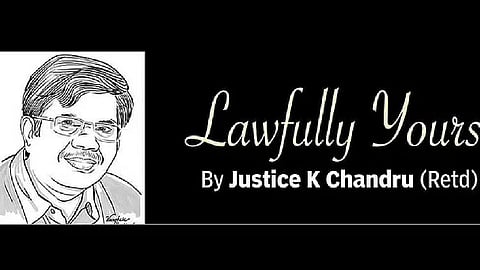

CHENNAI: Rules alone not enough to make public keep off banned leaders
Q: Is it legally correct to exhibit photos/posters of personnel of banned outfits? I see a lot of autorickshaws exhibiting the photos/posters of the slain leader of the militant separatist group Liberation Tigers of Tamil Eelam (LTTE), banned in India after the assassination of former prime minister Rajiv Gandhi in 1991. Also, a political outfit openly exhibits the photos of LTTE leader Prabhakaran. If it is legally wrong, why then are the authorities failing to take against these violations? — VS Jayaraman, T Nagar
Exhibition of any picture on a public vehicle is not permitted. But then every autorickshaw driver puts up pictures of their beloved leaders. In a country like ours, personality cult is inevitable. Are not people glorifying the assassin of Mahatma Gandhi? Are not ‘pattiman-drams’ organised to describe the virtues of Ravana? There are many who have taken that name. These things cannot be abolished merely by rules but by proper education only.
Supreme Court yet to declare freebie practice as corrupt
Q: The freebie culture has stooped to a new low and is all about winning elections than about serving justice to the needy. In the run-up to the 2021 Assembly election, the DMK not only promised to abolish the National Eligibility-cum-Entrance Test (NEET) in Tamil Nadu if voted to power, it even made the issue the centrepiece of its poll campaign. The party knew fully well its limitation and that a similar attempt by the AIADMK government in 2017 had failed. Why is our legal system failing to address the issue of political parties promising the skies in the runup to elections and managing to get away with it once they are in power? — Muthuselvam, RK Nagar, Chennai
If unrealistic freebies are offered by any party, then voters must not favour that party. Announcing freebies in the election manifesto was challenged as a “corrupt practice”, but was rejected by the Supreme Court (Subramaniam Balaji vs State of Tamil Nadu - 5/2/2013). The Supreme Court had held that promises made by political parties in election manifesto cannot be construed as a “corrupt practice” under the Representation of Peoples Act, 1951. The court ruled that they are akin to Directive Principles of State Policy enshrined in part-IV of the Constitution which has also given several promises but is not enforceable by courts. Once again, the Supreme court has started a new exercise to reexamine the issue. Let us wait and see its outcome.
Visit news.dtnext.in to explore our interactive epaper!
Download the DT Next app for more exciting features!
Click here for iOS
Click here for Android